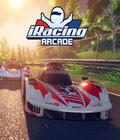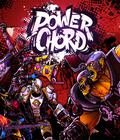Power Chord is set in a rock 'n' roll world where musicians also have super cool powers. There was a battle against demons that ended with them sealing away the worst of the lot behind a portal. Wouldn't you know it, though? The demons have found a way back and are looking to reopen the portal! It is up to the latest generations of musical heroes to band together, stop the demons, and play the heck out of music.
Power Chord'scharacter choice is unusual. Instead of choosing one character, you build a team that contains four members: bass, drummer, guitarist and singer. Bass specialize in debuffs. Drummers are the tanks of the game and specialize in tanking damage and providing defense. Guitarists specialize in damage. Singers are the support and healing role. Each role has multiple choices, but some are being released down the line and show up as "coming soon" on the current release.
It's a nice feature that lets you add customization to your team. For example, Stitch the default singer is a healer who can buff your party to do more damage and keep them up and alive. Asher Odd, the other available singer, focuses on things like drawing cards. Bor Ironcast the guitarist has a barrier mechanic that allows him to put one-time barriers on allies to nullify single hits; his counterpart Roxy Cleaver focuses on building up lasting armor defense. Roles also share certain cards. When you get relics (called "gear" in this game) that grant passive bonuses, you have to equip it, and each character can only hold a certain amount of gear.
The core combat is the standard roguelike deck builder popularized by Slay the Spire. You draw cards and then have a small amount of energy to spend, with each card having its own card value. Choose the right cards to damage enemies, or build up your own defenses for the enemy's attacks. Since you have four party members, you draw cards for each one all at once, not unlike Steamworld: Quest. If a character goes down in battle, you lose access to that character's cards. After every round, you pick prizes and select the next node to visit for either more fighting, an event, or a shop.
The thing that sets Power Chord apart from most of the other Slay the Spire games I've played is that the numbers for pretty much everything are incredibly low. Your characters have a lot of skills that deal only one damage, and enemies aren't much stronger. Hit points on both sides are also rock-bottom, and even the most durable enemies barely crack three digits. (The final boss has 999 HP — and a gimmick that lets you knock off 100 HP at a time.)
I'm torn on how successful this is. On the one hand, it's neat to see what would've been worthless power-ups in other games have some true value here. On the other hand, it also means that it's far too easy to gain too much power too quickly. Even a one- or two-point increase in the damage that you deal is huge. Likewise, it becomes difficult for enemies to outpace your healing and defenses unless they deal ridiculous amounts of damage. When a single point is the difference between weak and strong and you figure out how to stack multiple buffs, things get absurd.
It also comes to Power Chord's biggest problem: It's incredibly easy. I was able to finish the game on my very first playthrough and face the true final boss on my second. (Said boss is locked until you finish the regular final boss at least once.) At no point did I feel like I was struggling, and even without the knowledge that comes from playing repeatedly, I was able to build an effectively powerful deck. I didn't even see a character die until the true final boss, and even there, I was one turn from the end.
The problem is that once you've done that, there isn't a ton left to the game. At this point, it lacks anything like an Ascension mechanic. You can play the game again, but its low difficulty makes that unsatisfying. The game does have a series of challenges that you can use to unlock new cards and characters, but a lot of them are fairly grindy and require multiple playthroughs. There are a couple of interesting challenges, but most of them don't ask much. I collected a ton just playing through the game.
This makes Power Chord a harder game to recommend if you're a die-hard roguelike deck builder fan. There isn't enough meat to keep you coming back compared to Slay the Spire or Monster Trains. Even most of the cheaper games (e.g., Castle Morihisa) feel like they have more content. If you want a metal-themed adventure that isn't going to feel too punishing or taxing, then this is certainly fun enough but not enough to stand out if you don't like the themes.
The visuals are nice, with well-animated environments, character models, and a lot of awesome special effects. Aa lot of the enemy character models are a bit too similar, so it can be difficult to identify them based on sight. The character designs are nice and grungy and really fit the aesthetic of the game. Likewise, the music is pretty darn good, as you'd expect for a title going for a heavy metal theme. It doesn't blow my mind, but it does the job well enough.
Power Chord is a perfectly competent but entirely unexceptional roguelike deck builder. Once you take away the rock 'n' roll theme, it's pretty much another Slay the Spire clone that doesn't do enough to differentiate itself from the rest. It looks nice and plays well, but it doesn't stand out. If you've already burned through the other games in the genre and want something new, Power Chord will be the nice snack, but don't expect it to be a long-term engagement.
Score: 7.0/10
More articles about Power Chord











 Power Chord is a heavy metal roguelike deck builder that pits knights and samurai against punk rock demons, while shredding gnarly solos.
Power Chord is a heavy metal roguelike deck builder that pits knights and samurai against punk rock demons, while shredding gnarly solos.











